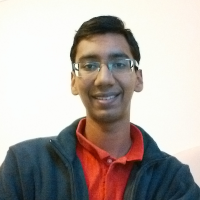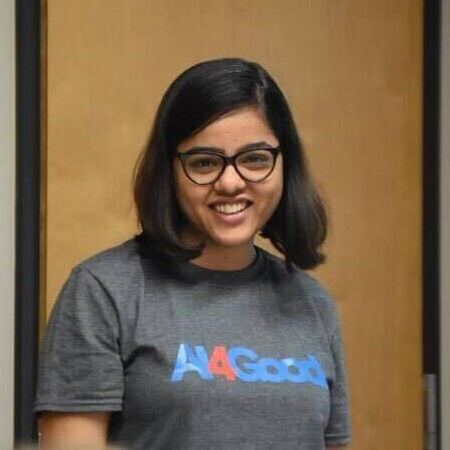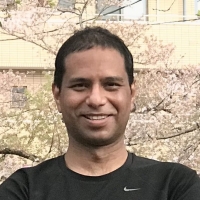Organizers
Contact email address: continual.lifelong.learning@gmail.com
 Siddharth Swaroop is a postdoctoral fellow in the Data to Actionable Knowledge lab at Harvard University. He completed his PhD in machine learning from University of Cambridge, UK in 2022, where he received a Microsoft Research EMEA PhD Award. He also has an MEng (2017) from University of Cambridge. His interests are in continual deep learning using probabilistic methods, Bayesian deep learning, and connections to federated learning.
Siddharth Swaroop is a postdoctoral fellow in the Data to Actionable Knowledge lab at Harvard University. He completed his PhD in machine learning from University of Cambridge, UK in 2022, where he received a Microsoft Research EMEA PhD Award. He also has an MEng (2017) from University of Cambridge. His interests are in continual deep learning using probabilistic methods, Bayesian deep learning, and connections to federated learning.
 Lu Xu is a postdoctoral researcher at the Approximate Bayesian Inference Team at RIKEN Center for AI Project (AIP), Japan. She completed her PhD in Pattern Recognition and Intelligent Systems from Xi’an Jiaotong University, China in 2021. Her thesis topic was on data-efficient deep learning algorithms, targeting 3D hand pose estimation tasks. Her current research interests are in improving continual and interpretable deep learning by using Bayesian approaches.
Lu Xu is a postdoctoral researcher at the Approximate Bayesian Inference Team at RIKEN Center for AI Project (AIP), Japan. She completed her PhD in Pattern Recognition and Intelligent Systems from Xi’an Jiaotong University, China in 2021. Her thesis topic was on data-efficient deep learning algorithms, targeting 3D hand pose estimation tasks. Her current research interests are in improving continual and interpretable deep learning by using Bayesian approaches.
 Peter Nickl is a research assistant at the Approximate Bayesian Inference Team at RIKEN Center for AI Project (AIP), Japan. He was part of the winning team of the NeurIPS 2021 Approximate Inference in Bayesian Deep Learning competition. He holds Masters degrees in mechanical engineering and economics from Technical University of Darmstadt, Germany. His thesis used techniques from probabilistic machine learning and robotics. His interests include Bayesian deep learning and reinforcement learning. He likes to use insights from cognitive science to develop autonomous and continually-adapting AI systems.
Peter Nickl is a research assistant at the Approximate Bayesian Inference Team at RIKEN Center for AI Project (AIP), Japan. He was part of the winning team of the NeurIPS 2021 Approximate Inference in Bayesian Deep Learning competition. He holds Masters degrees in mechanical engineering and economics from Technical University of Darmstadt, Germany. His thesis used techniques from probabilistic machine learning and robotics. His interests include Bayesian deep learning and reinforcement learning. He likes to use insights from cognitive science to develop autonomous and continually-adapting AI systems.
 Khimya Khetarpal is a final year computer science Ph.D. candidate in the Reasoning and Learning Lab at McGill University and Mila, Montreal, advised by Doina Precup. Her research interest lies in how RL agents learn to efficiently represent the world’s knowledge, plan with it, and adapt to changes over time. Khimya’s work has appeared in leading AI conferences including JAIR, NeurIPS, ICML, AAAI, AISTATS, ICLR, The Knowledge Engineering Review, and ACM. Her work has also been featured in MIT Technology Review. She was recognized as one of the Rising Stars in EECS 2020, a finalist for Three Minute Thesis (3MT) competition in AAAI 2019, selected for the Doctoral Consortium at AAAI 2019, and awarded Best Paper Award (3rd Price) for an ICML 2018 workshop on lifelong learning. Throughout her career, she has sought to actively mentor through initiatives such as co-founding the Mila peer advising initiative, teaching and assisting AI4Good Lab, volunteering at Skype A Scientist, and FIRST Robotics.
Khimya Khetarpal is a final year computer science Ph.D. candidate in the Reasoning and Learning Lab at McGill University and Mila, Montreal, advised by Doina Precup. Her research interest lies in how RL agents learn to efficiently represent the world’s knowledge, plan with it, and adapt to changes over time. Khimya’s work has appeared in leading AI conferences including JAIR, NeurIPS, ICML, AAAI, AISTATS, ICLR, The Knowledge Engineering Review, and ACM. Her work has also been featured in MIT Technology Review. She was recognized as one of the Rising Stars in EECS 2020, a finalist for Three Minute Thesis (3MT) competition in AAAI 2019, selected for the Doctoral Consortium at AAAI 2019, and awarded Best Paper Award (3rd Price) for an ICML 2018 workshop on lifelong learning. Throughout her career, she has sought to actively mentor through initiatives such as co-founding the Mila peer advising initiative, teaching and assisting AI4Good Lab, volunteering at Skype A Scientist, and FIRST Robotics.
 Martin Mundt is a junior research group leader at the Technical University of Darmstadt (TU Darmstadt) and the Hessian Center for Artificial Intelligence (hessian.AI), where he leads the Open World Lifelong Learning (OWLL) lab. He is a board member of directors at the non-profit organisation ContinualAI. Recently, he taught a course on open world lifelong learning at TU Darmstadt and in open-access form on YouTube. He was previously a postdoc in the artificial intelligence and machine learning lab at TU Darmstadt and has obtained a PhD degree in computer science from Goethe University (2021), where his thesis on continual learning has received an award for the best thesis in natural sciences. He further holds a Master’s degree (2015) in Physics. The main vision behind his research and OWLL is to develop systems that can not only learn continuously, but also successfully recognize new situations and actively choose data to train on, while autonomously adapting in a robust and interpretable way.
Martin Mundt is a junior research group leader at the Technical University of Darmstadt (TU Darmstadt) and the Hessian Center for Artificial Intelligence (hessian.AI), where he leads the Open World Lifelong Learning (OWLL) lab. He is a board member of directors at the non-profit organisation ContinualAI. Recently, he taught a course on open world lifelong learning at TU Darmstadt and in open-access form on YouTube. He was previously a postdoc in the artificial intelligence and machine learning lab at TU Darmstadt and has obtained a PhD degree in computer science from Goethe University (2021), where his thesis on continual learning has received an award for the best thesis in natural sciences. He further holds a Master’s degree (2015) in Physics. The main vision behind his research and OWLL is to develop systems that can not only learn continuously, but also successfully recognize new situations and actively choose data to train on, while autonomously adapting in a robust and interpretable way.
 Emtiyaz Khan (also known as Emti) is a team leader at the RIKEN Center for Advanced Intelligence Project (AIP) in Tokyo where he leads the Approximate Bayesian Inference Team. Previously, he was a postdoc and then a scientist at Ecole Polytechnique Fédérale de Lausanne (EPFL), where he also taught two large machine learning courses and received a teaching award. He finished his PhD in machine learning from University of British Columbia in 2012. The main goal of Emti’s research is to understand the principles of learning from data and use them to develop algorithms that can learn like living beings. For more than a decade, his work has focused on developing Bayesian methods that could lead to such fundamental principles. The approximate Bayesian inference team now continues to use these principles, as well as derive new ones, to solve real-world problems.
Emtiyaz Khan (also known as Emti) is a team leader at the RIKEN Center for Advanced Intelligence Project (AIP) in Tokyo where he leads the Approximate Bayesian Inference Team. Previously, he was a postdoc and then a scientist at Ecole Polytechnique Fédérale de Lausanne (EPFL), where he also taught two large machine learning courses and received a teaching award. He finished his PhD in machine learning from University of British Columbia in 2012. The main goal of Emti’s research is to understand the principles of learning from data and use them to develop algorithms that can learn like living beings. For more than a decade, his work has focused on developing Bayesian methods that could lead to such fundamental principles. The approximate Bayesian inference team now continues to use these principles, as well as derive new ones, to solve real-world problems.